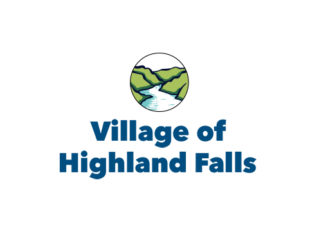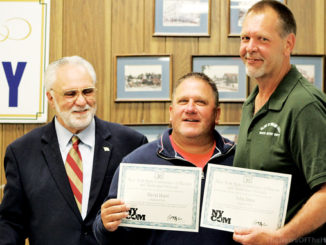D’Onofrio: “we win, and it’s over”
The appeal to the Article 78 court case filed against the Village of Highland Falls in August 2017 appears to be over.
Last week, the Appellate Court of the Supreme Court of the State of New York ruled in the favor of the village; accepting Village Attorney Alyse Terhune’s arguments on the matter and upholding a lower court’s dismissal of the case.
The decision in the case was unanimous.
The suit was filed by Katharine Dagaev, Pat Flynn, Sharon Guy and Laura Milsom. It charged that a decision made by the Village Board to modify a disciplinary settlement and reinstate Highland Falls Police Chief Ken Scott should not be allowed because Trustee James Ramus, Scott’s brother-in-law voted in the matter.
Last June, Judge Sandra Sciortino ruled in the village’s favor on the case; the petitioners filed the appeal in late 2018. The petitioners were represented by Stephen Bergstein of Bergstein & Ullrich of New Paltz.
The judges hearing the appeal were Mark C. Dillon, Jeffrey A. Cohen, Colleen D. Duffy and Linda Christopher.
The original “order and judgment”, according to the Appellate decision, dismissed the proceeding for lack of standing, and thereupon, denied the petition and dismissed the proceeding.
The Appellate court affirmed that decision.
“We agree with the Supreme Court that the petitioners lack standing to maintain this proceeding. The petitioners effectively concede that they cannot demonstrate the existence of an injury in fact and, contrary to their contention, they do not qualify for common-law taxpayer standing. In light of the foregoing, we need not reach the petitioners’ remaining contention.”
At Monday night’s meeting of the Village Board, Mayor Joe D’Onofrio thanked attorney Alyse Terhune for her work on the case. He also said that he will “wait for our last attorney’s bill and then tell the taxpayers the amount that this lawsuit cost them.” He added that in addition to the money spent defending the case, “the amount of time put into it — for the last two years — was phenomenal”.
“But, we win and it’s over,” the mayor said.
D’Onofrio said he had heard that the petitioners were considering appealing the decision, but said it had been explained to him that it would be difficult to do that, because of the way the highest court in the state, the NY Court of Appeals, is set up.
“There are four ways to go in front of the Court of the Appeals, and none of them apply here,” he said, saying that the ways include having a split decision at the Appellate level; the matter involves a US or NYS constitutional matter; the Appellate court gives their permission to appeal; or the matter fits “broad issues of law where there is a conflict among Appellate divisions and not individual factual disputes like in this case”.
D’Onofrio said the court also “awarded costs” in the case, which means that the village will recover its out-of-pocket filing fees. That does not mean the petitioners will be charged the village’s legal fees in the case.


